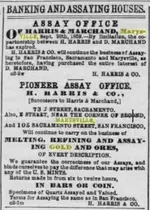As he told the story, Captain Shears took the ore into the harbor at Bellingham, Washington where it was off loaded into a freight wagon to be transported into Canada which is only 30 miles or so the the north of that town. Bellingham is the northernmost city in the U.S so it makes sense if Canada was their destination.
It might have made more sense to just sail directly to Canada. Overland travel in the PNW was a serious PITA during the 19th century. Heck, it's still a bit of a PITA in 2019. Most travel was (and a lot of travel still is) done around here via water. But then again, sailing directly to Canada may not have been desirable or even possible. More on that below.
Supposedly something happened on the way to Canada with the gold.
Depending on the exact time period that we're discussing, Americans attempting to enter Canada would have encountered problems. We'll get back to this in a moment. But first...
There are several old roads up there heading north & they wouldn't have been able to move the ore very far off the road so now I think it's a matter of how much time it would take to search possibly using metal detectors.
Lots. Those old roads from Whatcom (the Whatcom and Skagit Trails) were not an easy trip. The Whatcom Trail, being significantly shorter than the Skagit, runs probably 60 or 70 miles before you even get to the border; then you're looking at another 15 miles or so before you get to anything resembling civilization (Fort Hope, where modern day Hope is located). The Skagit is quite a bit longer. Both run through the Cascades for essentially their entire lengths. This would not have been a fun jaunt through the woods.
https://en.wikipedia.org/wiki/Whatcom_Trail
The Skagit Trail doesn't have a Wiki entry but it's easy enough to find: fire up Google Earth or Google Maps and pan down around 20 miles south of Bellingham. The mouth of the Skagit River starts where modern day Conway is. Now follow the Skagit up through Burlington, NE up to Ross Lake, then north through the Skagit Valley up to Hope. Both of these routes involve a lot of walking through rough terrain, but those were probably your only choices if you wanted to take a carriage from Whatcom to Canada. Remember, what you see today as gorgeous farmland north of Bellingham was, back then, impenetrable old growth forest, swamps, and Lake Sumas.
That's a heck of a journey. As I asked earlier, why not simply sail to Canada? I'm not saying that there's no possible reason for an overland journey, but there aren't many good ones. It's a question that needs to be answered if you're looking to "firm up" the story. Also, that's a heck of a lot of ground to cover with a metal detector.
However, let's assume that they unloaded in Whatcom and took one of those trails. What sorts of problems might they have encountered? It could have been something as simple as a disabled wagon; that's rough terrain that they're moving through. There was a lot of stuff going on in Washington Territory around this time, though...multiple wars against the Natives (Yakima War, Puget Sound War, Battle of Seattle, and periodic raids from the Haida up north), the Fraser River Gold Rush, etc. As for what could go wrong when entering Canada, the US had two tiffs with Canada around this time: Ned McGowan's War, 1858, and the Pig War of 1859, the latter having technically been a showdown with the UK but Canada was dragged into it. During both of these "wars," both the US and Canada put troops on the trails where they crossed the border. Would that have been a problem for some American bandits attempting to flee into Canada? Absolutely.
Admittedly I went into this in an effort to knock holes in this story, but I don't think that I did. If anything, I convinced myself that it's at least plausible. I even have a possible scenario for why it wound up buried, and why they never returned for it.




